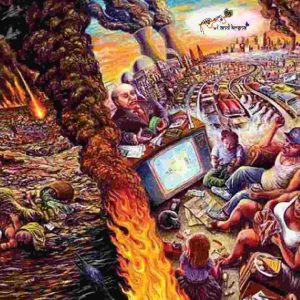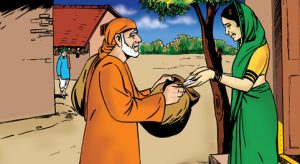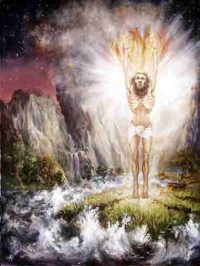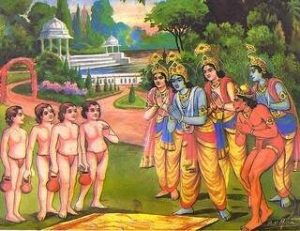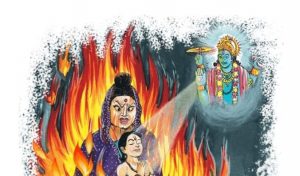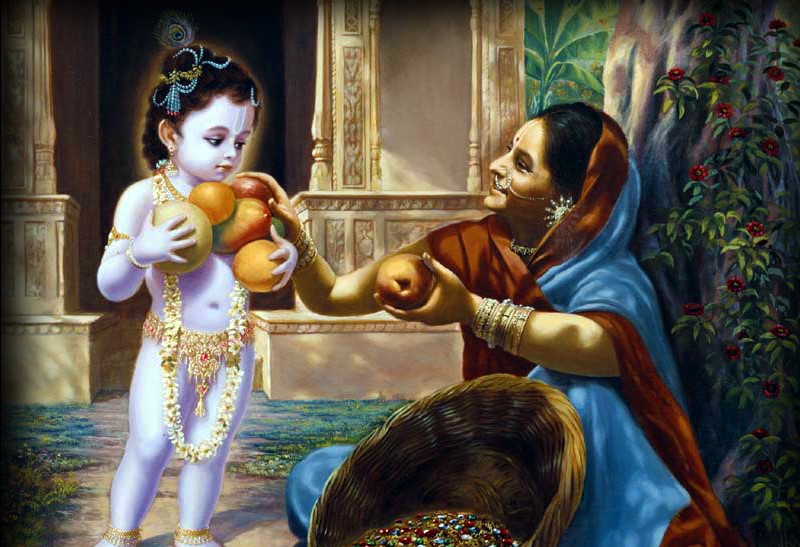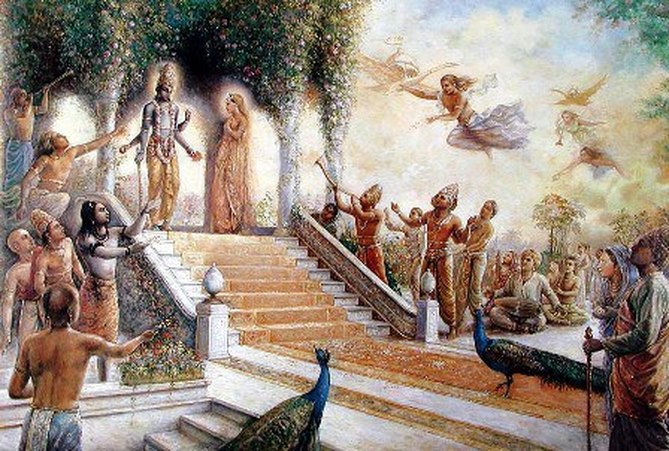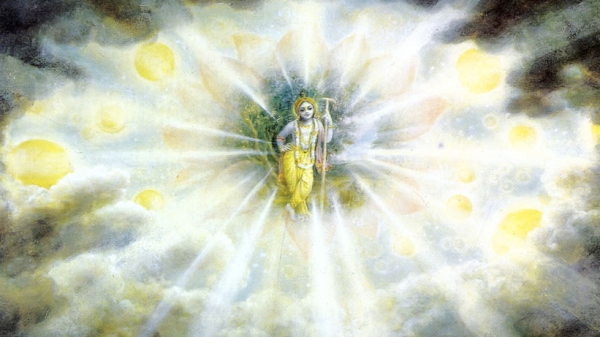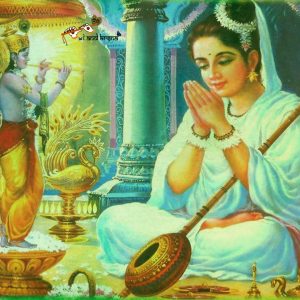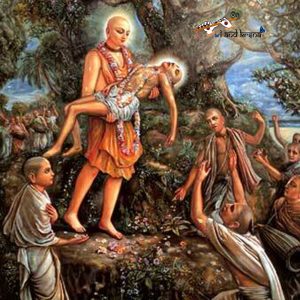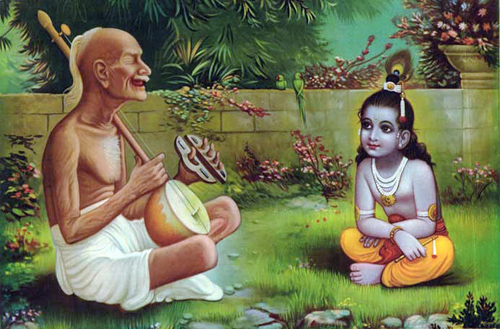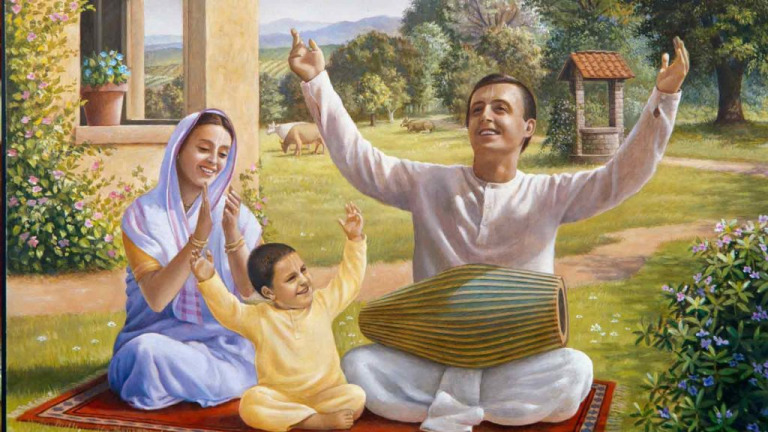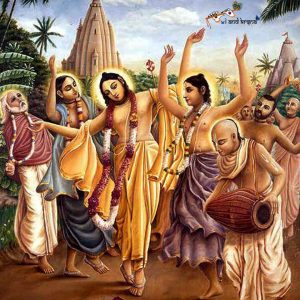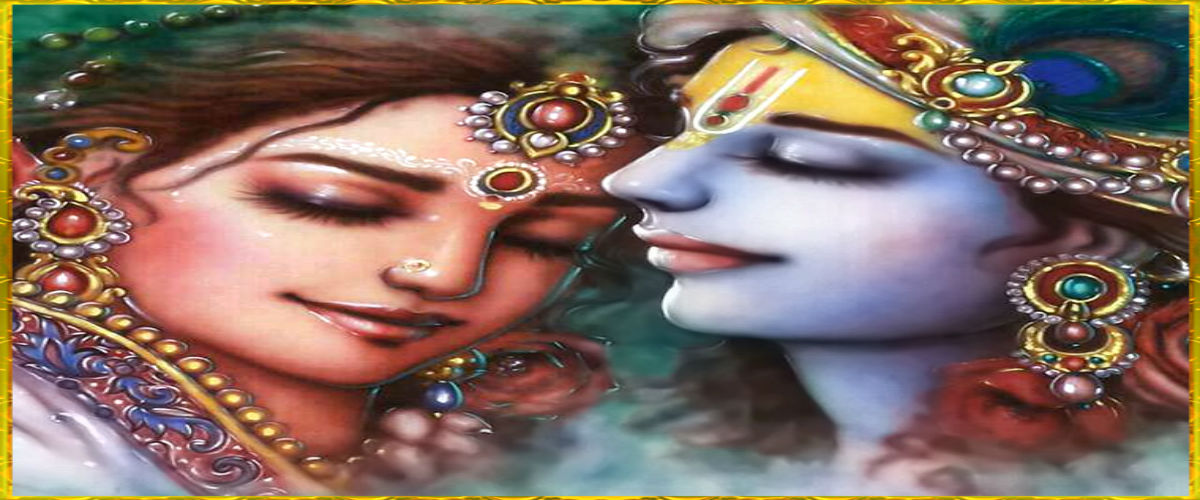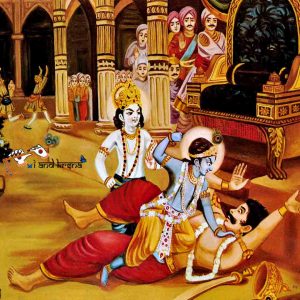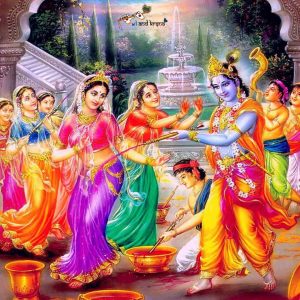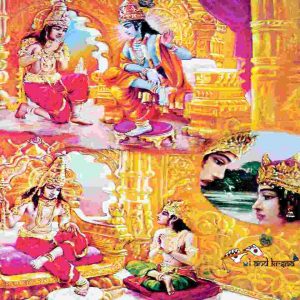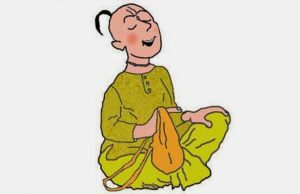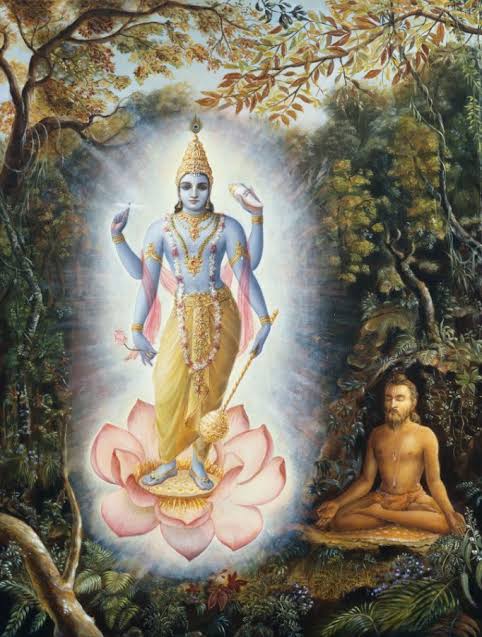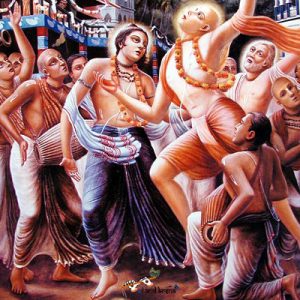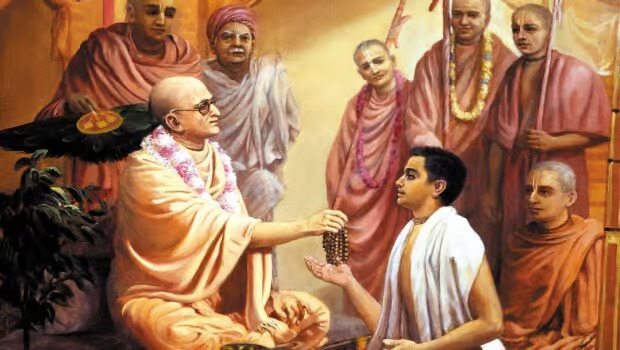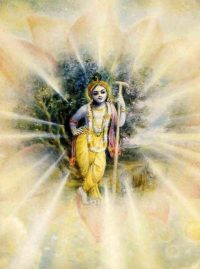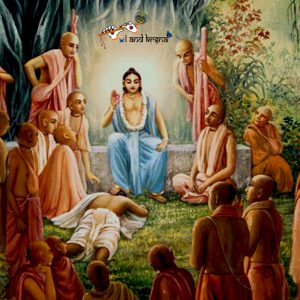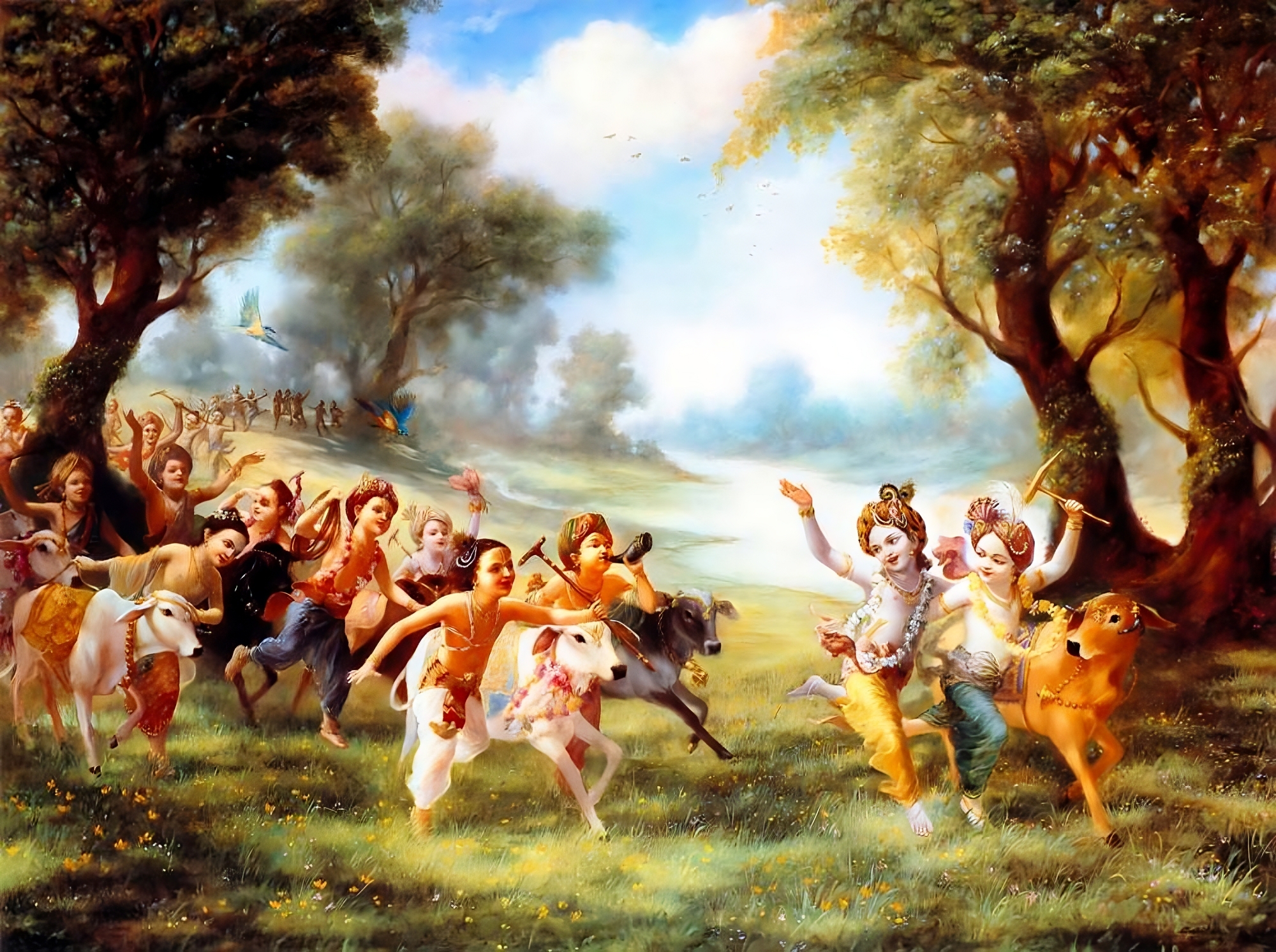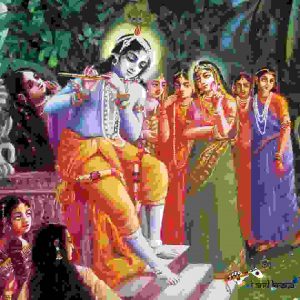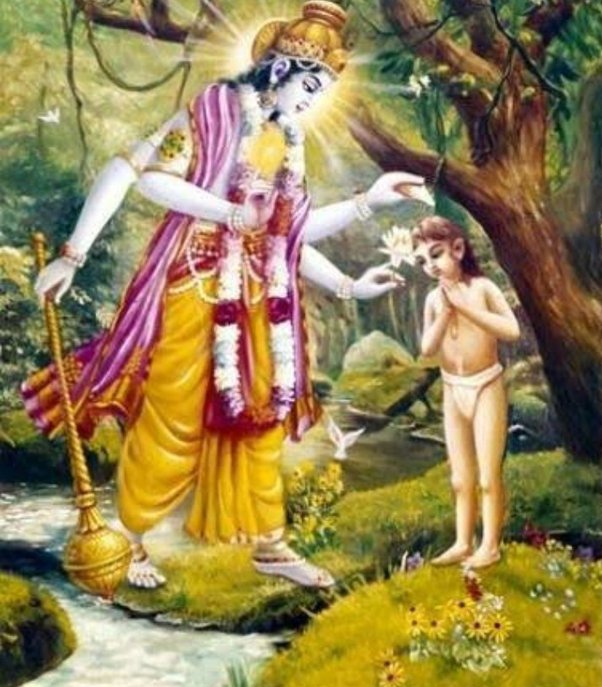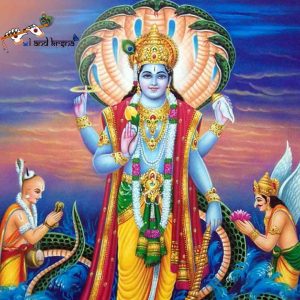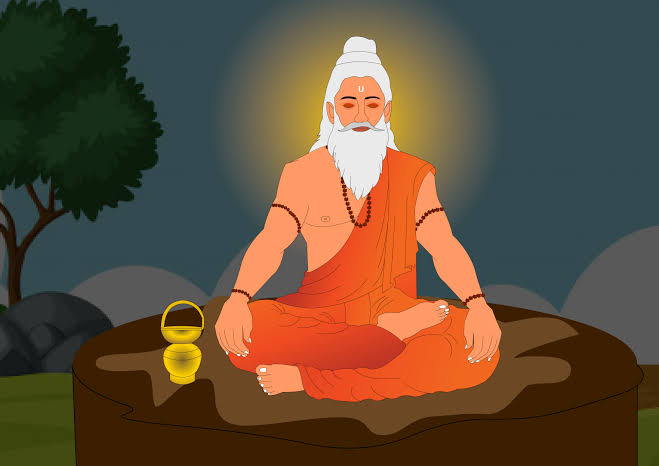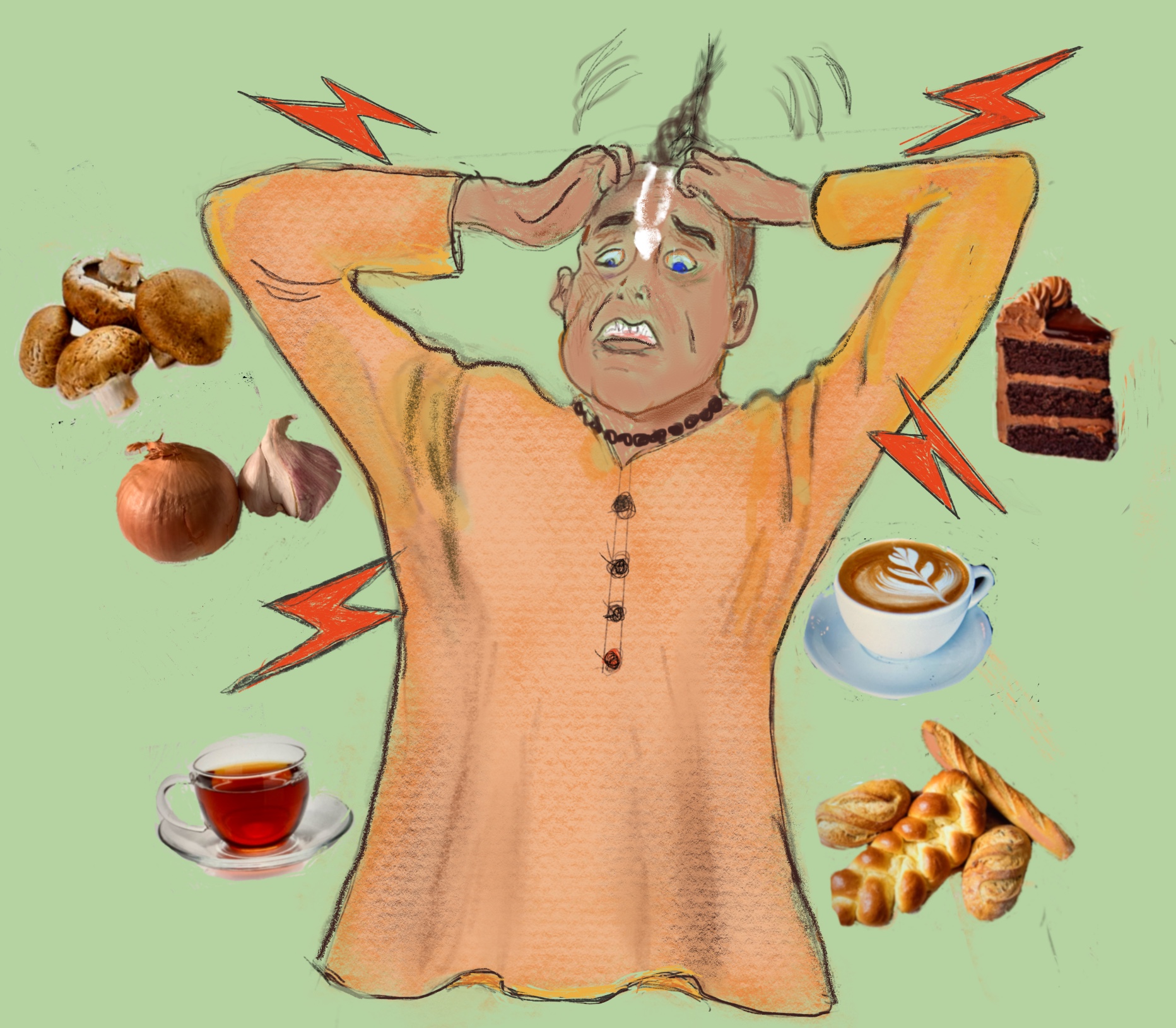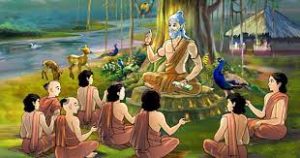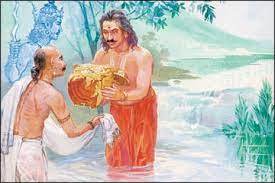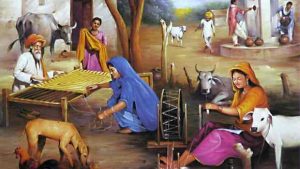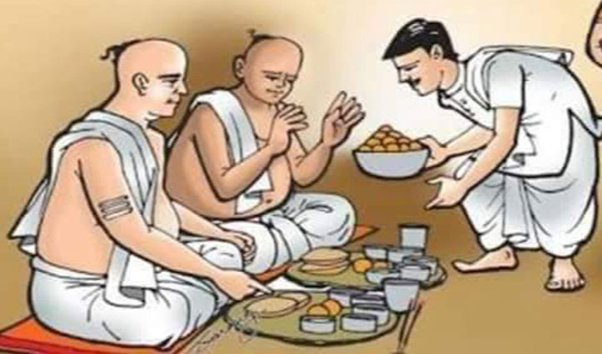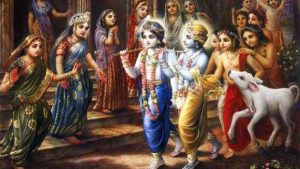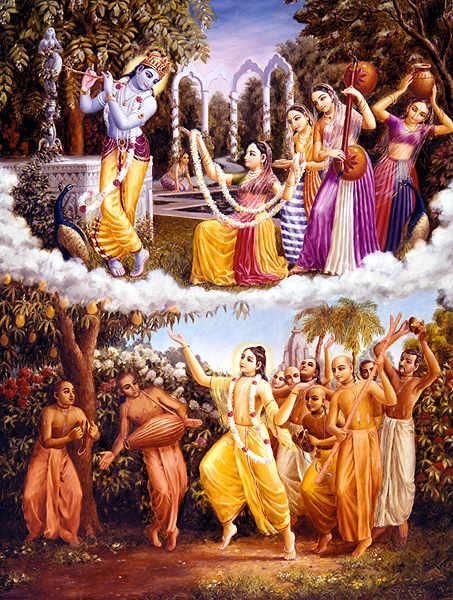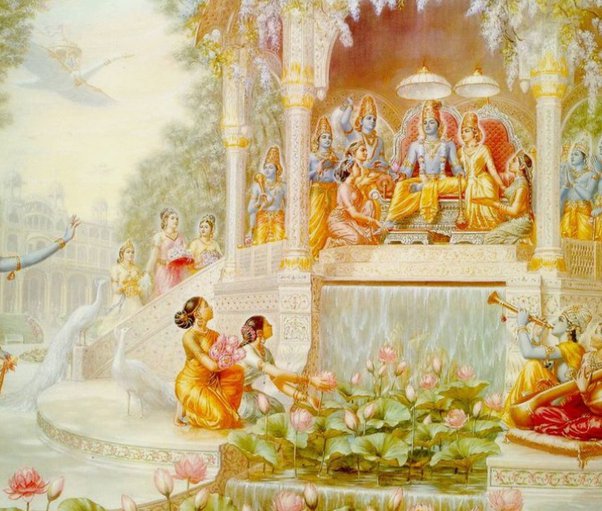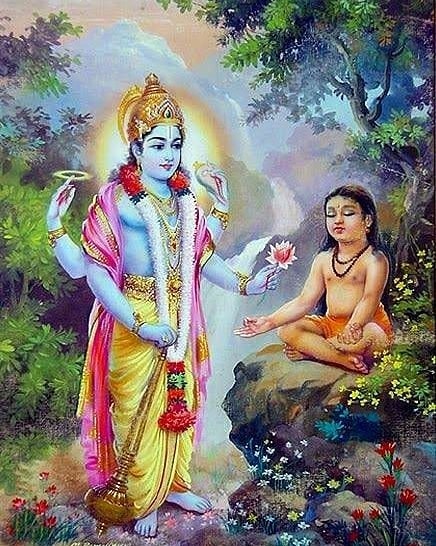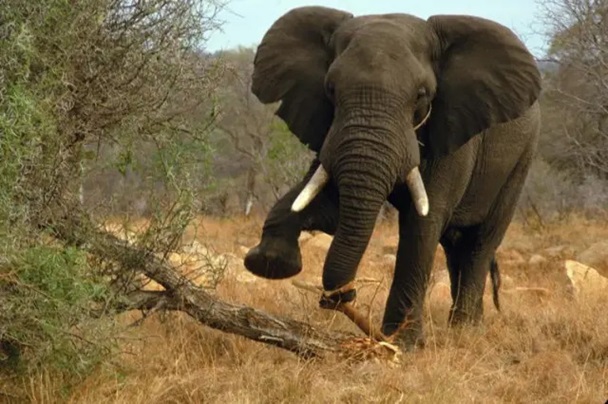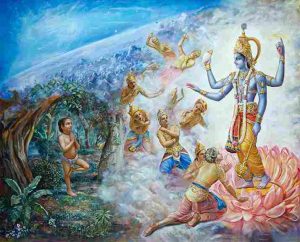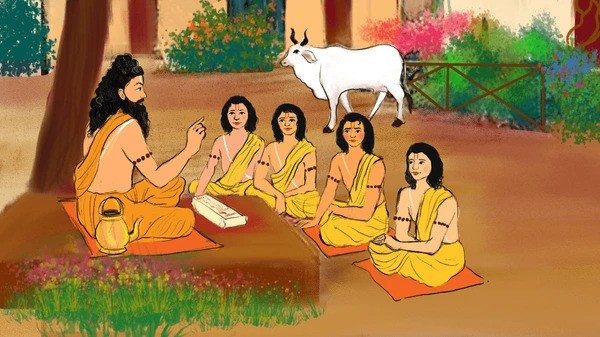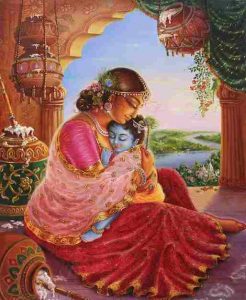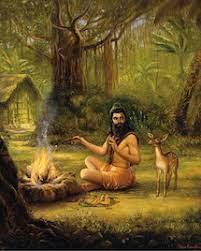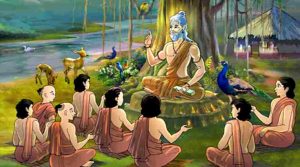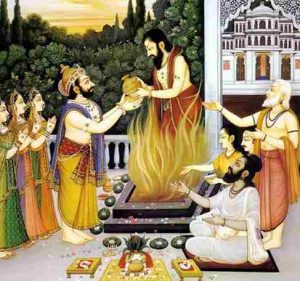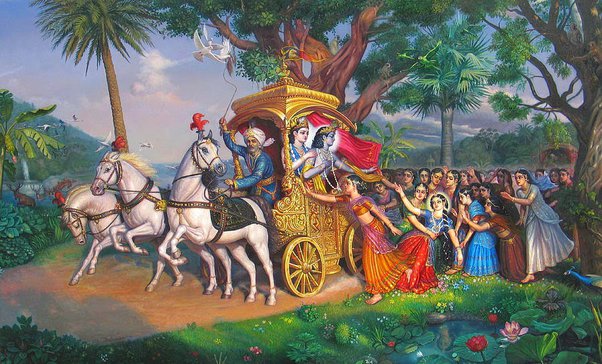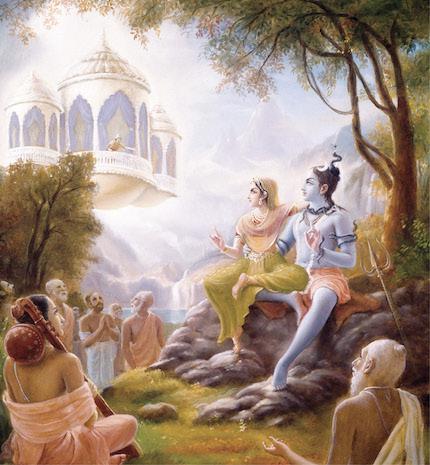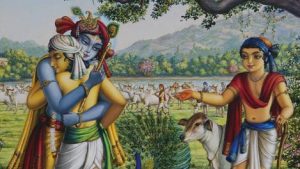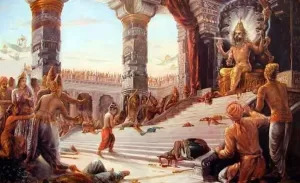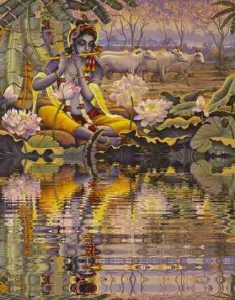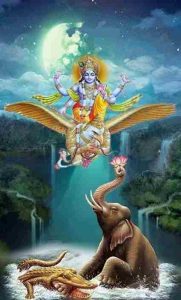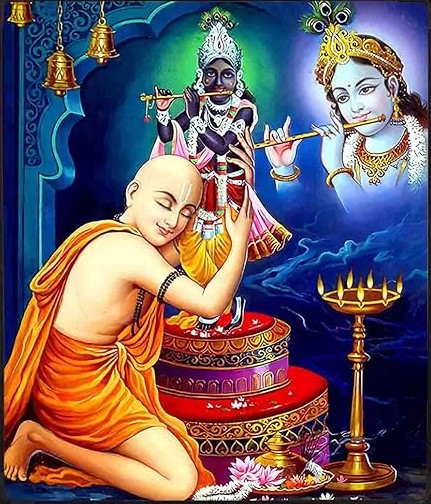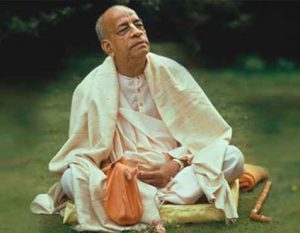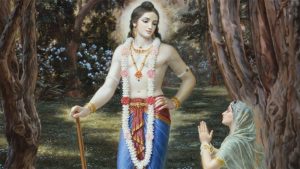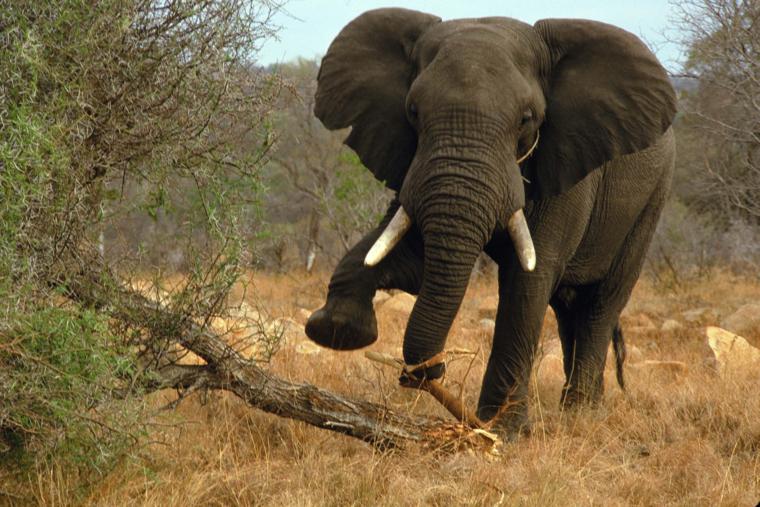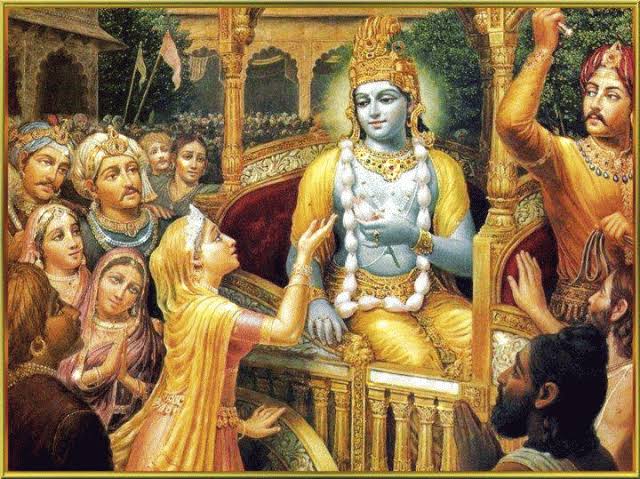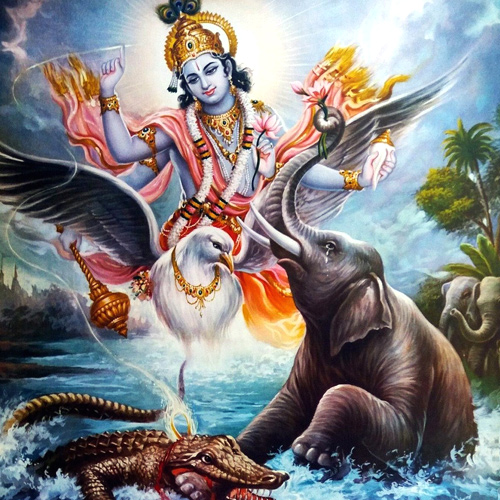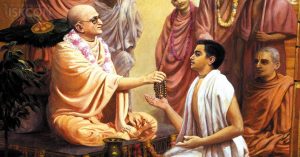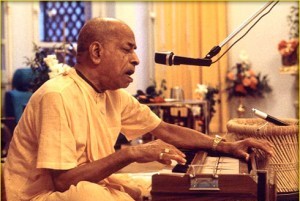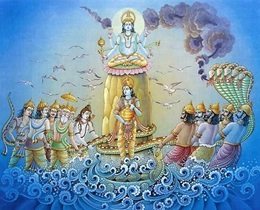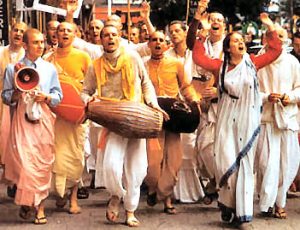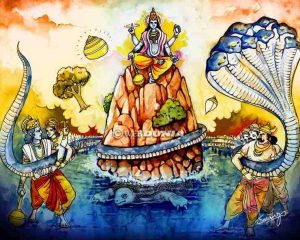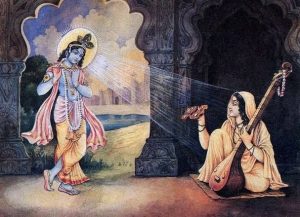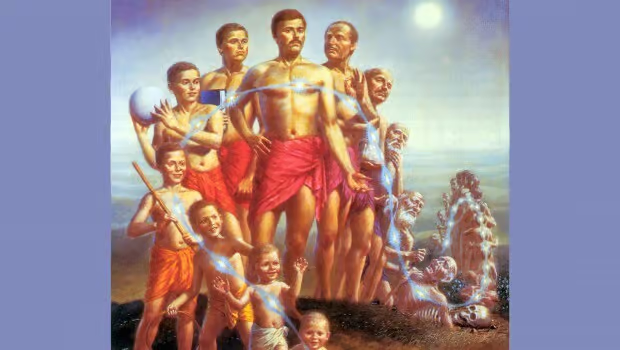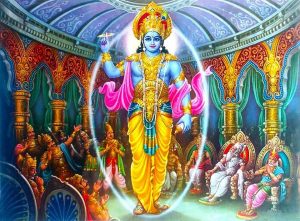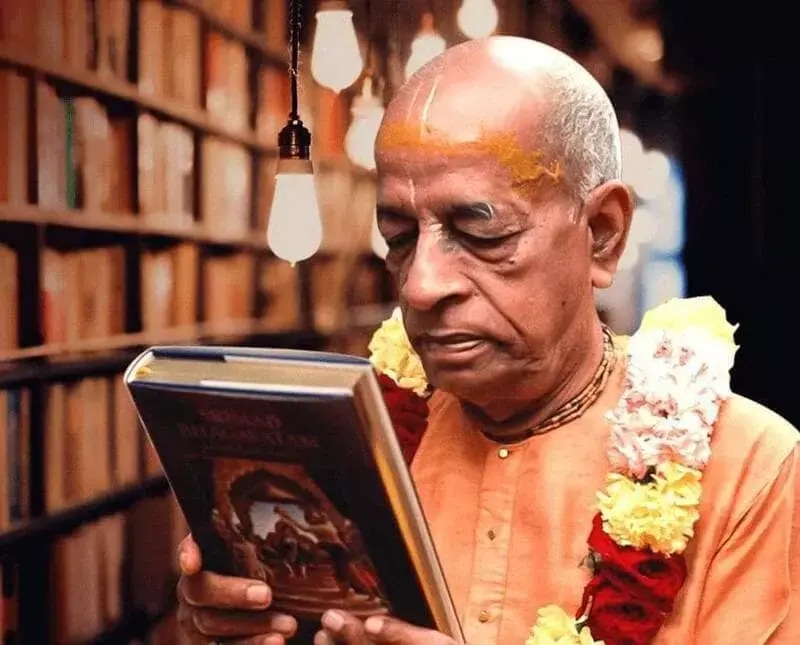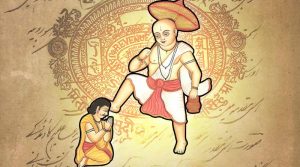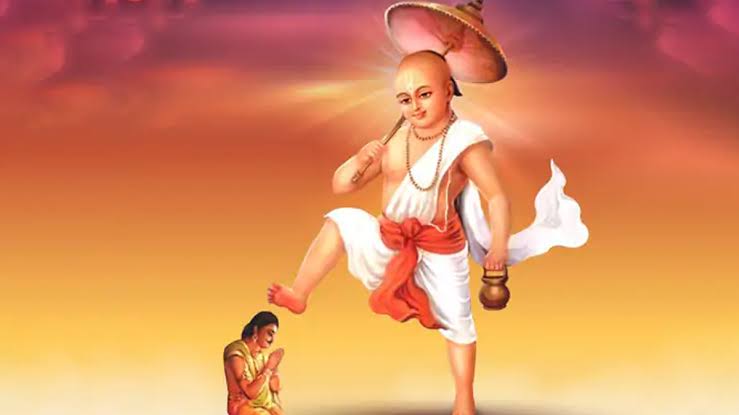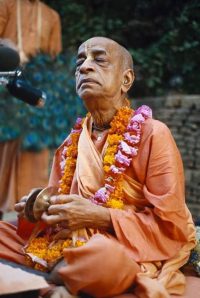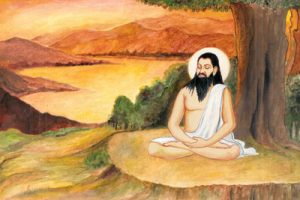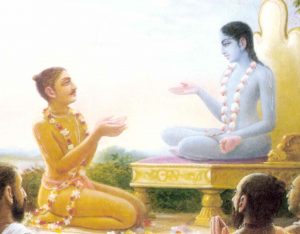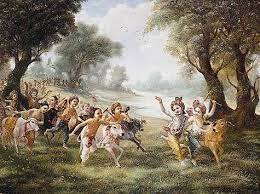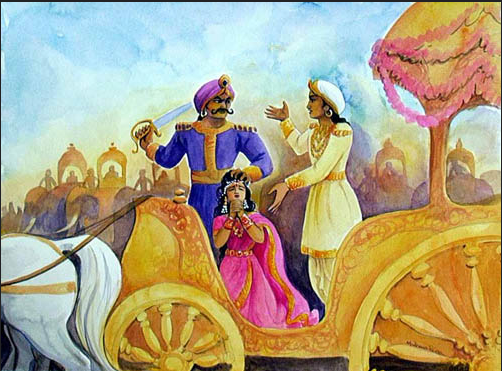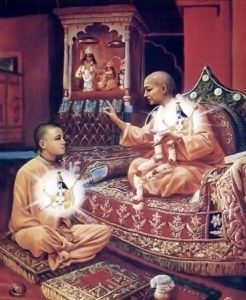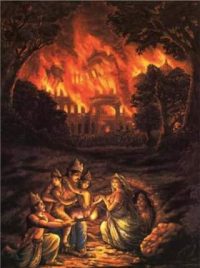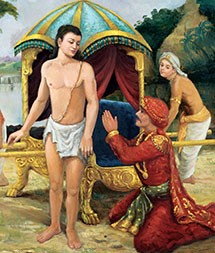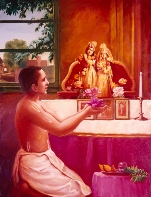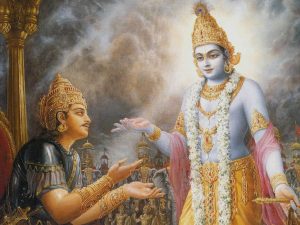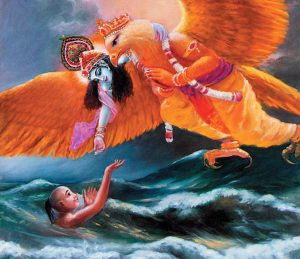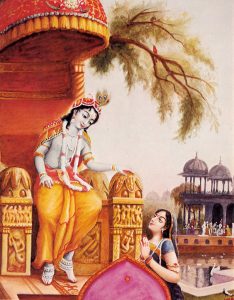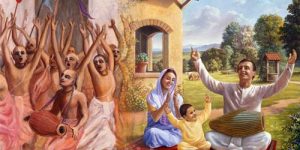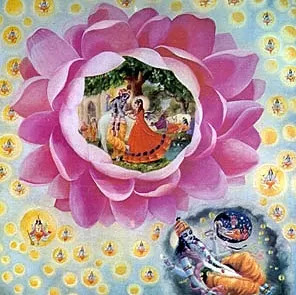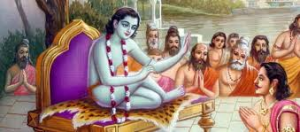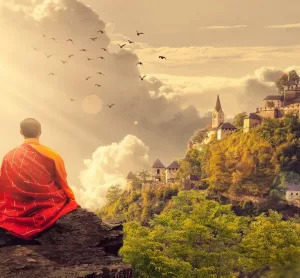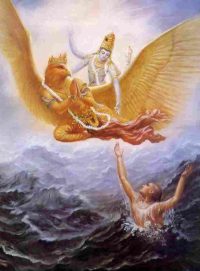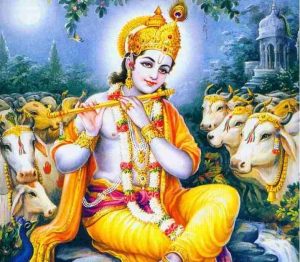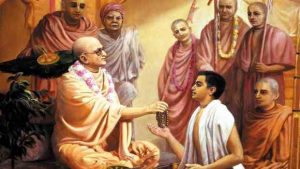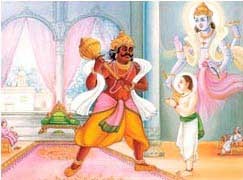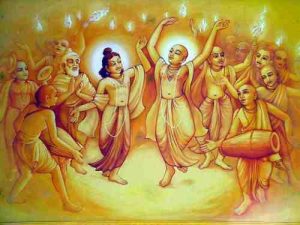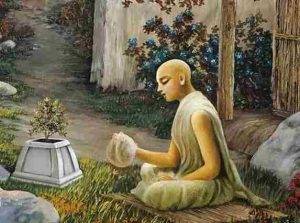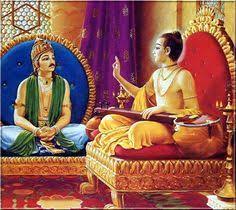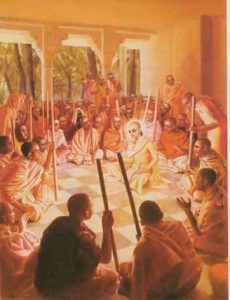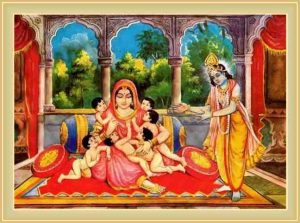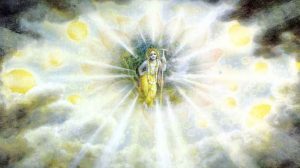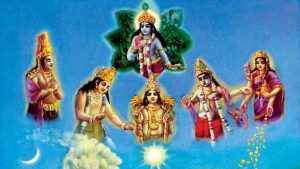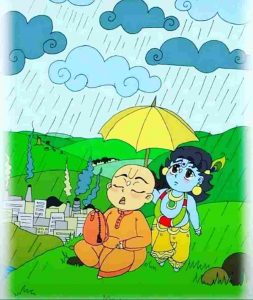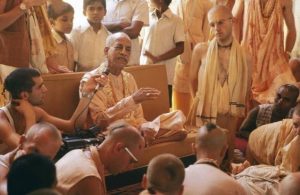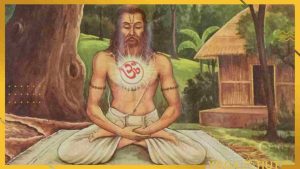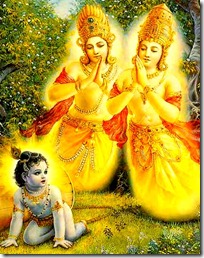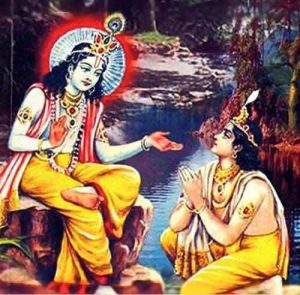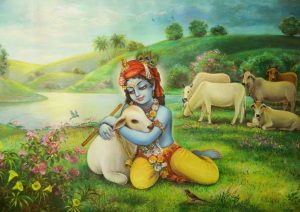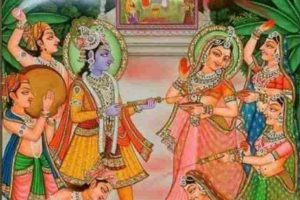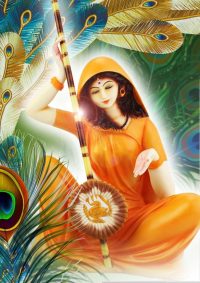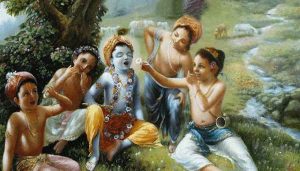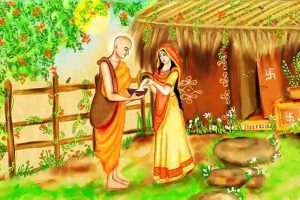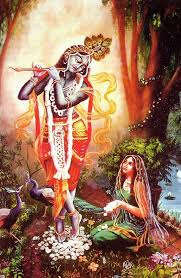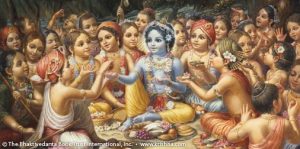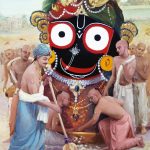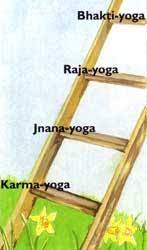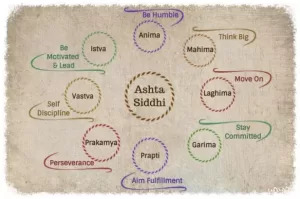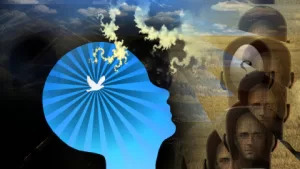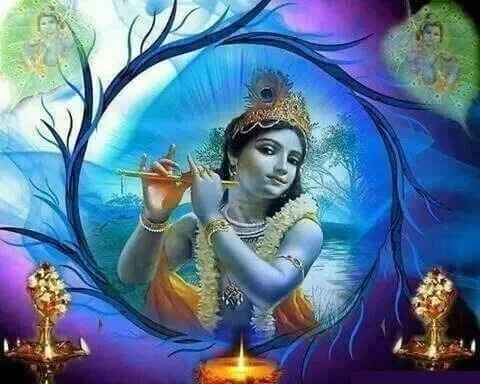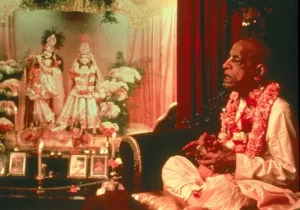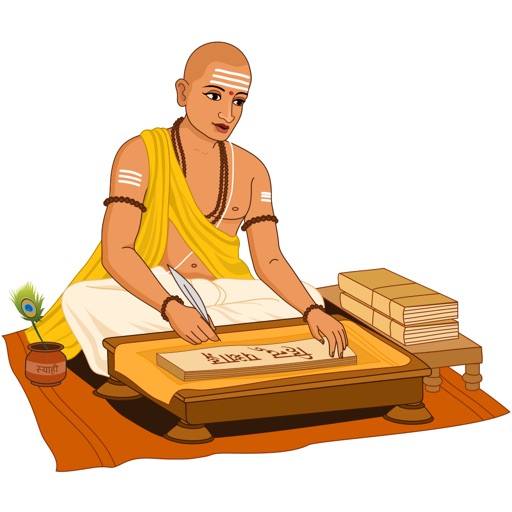Symptoms of the age of kali.
The people of the world in this age of Kali are always full of anxieties. Everyone is diseased with some kind of ailment. From the very faces of the people of this age, one can find out the index of the mind. Everyone feels the absence of his relative who is away from home. The particular symptom of the age of Kali is that no family is now blessed to live together. To earn a livelihood, the father lives at a place far away from the son, or the wife lives far away from the husband and so on. There are sufferings from internal diseases, separation from those near and dear, and anxieties for maintaining the status quo. These are but some important factors which make the people of this age always unhappy.
With the progress of the age of Kali, four things particularly, namely the duration of life, mercy, the power of recollection, and moral or religious principles will gradually diminish. Since Dharma, or the principles of religion, would be lost in the proportion of three out of four, the symbolic bull was standing on one leg only. When three-fourths of the population of the whole world become irreligious, the situation is converted into hell for the animals. In the age of Kali, godless civilizations will create so many so-called religious societies in which the Personality of Godhead will be directly or indirectly defied. And thus faithless societies of men will make the world uninhabitable for the saner section of people. There are gradations of human beings in terms of proportionate faith in the Supreme Personality of Godhead. The first-class faithful men are the Vaisnavas and the Brahmanas, then the ksatriyas, then the Vaisyas, then the sudras, then the mlecchas, the yavanas and at last the candalas. The degradation of the human instinct begins from the mlecchas, and the candala state of life is the last word in human degradation. All the above terms mentioned in the Vedic literature are never meant for any particular community or birth. They are different qualifications of human beings in general. There is no question of birthright or community. One can acquire the respective qualifications by one’s own efforts, and thus the son of a Vaisnava can become a mleccha, or the son of a candala can become more than a brahmana, all in terms of their association and intimate relation with the Supreme Lord.
The meat-eaters are generally called mlecchas. But all meat-eaters are not mlecchas. Those who accept meat in terms of scriptural injunctions are not mlecchas, but those who accept meat without restriction are called mlecchas. Beef is forbidden in the scriptures, and the bulls and cows are offered special protection by followers of the Vedas. But in this age of Kali, people will exploit the body of the bull and the cow as they like, and thus they will invite sufferings of various types. The people of this age will not perform any sacrifice. The mleccha population will care very little for performances of sacrifices, although performance of sacrifice is essential for persons who are materially engaged in sense enjoyment. In the Bhagavad-gita performance of sacrifices is strongly recommended (Bg. 3.14-16). The living beings are created by the creator Brahma, and just to maintain the created living being progressively towards the path back to Godhead, the system of performing sacrifice is also created by him. The system is that living beings live on the produce of grains and vegetables, and by eating such foodstuff they get vital power of the body in the shape of blood and semen, and from blood and semen one living being is able to create other living beings. But the production of grains, grass, etc. becomes possible by rain, and this rain is made to shower properly by performance of recommended sacrifices. Such sacrifices are directed by the rites of the Vedas, namely Sama, Yajur, Rg and Atharva. In the Manu-smrti it is recommended that by offerings of sacrifice on the altar of the fire, the sun-god is pleased. When the sun-god is pleased, he properly collects water from the sea, and thus sufficient clouds collect on the horizon and rains fall. After sufficient rains fall, there is sufficient production of grains for men and all animals, and thus there is energy in the living being for progressive activity. The mlecchas, however, make plans to install slaughterhouses for killing bulls and cows along with other animals, thinking that they will prosper by increasing the number of factories and live on animal food without caring for performance of sacrifices and production of grains. But they must know that even for the animals they must produce grass and vegetables, otherwise the animals cannot live. And to produce grass for the animals, they require sufficient rains. Therefore they have to depend ultimately on the mercy of the demigods like the sun-god, Indra and Candra, and such demigods must be satisfied by performances of sacrifice. This material world is a sort of prison house, as we have several times mentioned. The demigods are the servants of the Lord who see to the proper upkeep of the prison house. These demigods want to see that the rebel living beings, who want to survive faithlessly, are gradually turned towards the supreme power of the Lord. Therefore, the system of offering sacrifice is recommended in the scriptures. The materialistic men want to work hard and enjoy fruitive results for sense enjoyment. Thus they are committing many types of sins at every step of life. Those, however, who are consciously engaged in the devotional service of the Lord are transcendental to all varieties of sin and virtue. Their activities are free from the contamination of the three modes of material nature. For the devotees there is no need for performance of prescribed sacrifices because the very life of the devotee is a symbol of sacrifice. But persons who are engaged in fruitive activities for sense enjoyment must perform the prescribed sacrifices because that is the only means to get free from the reaction of all sins committed by fruitive workers. Sacrifice is the means for counteracting such accumulated sins. The demigods are pleased when such sacrifices are performed, just as prison officers are satisfied when the prisoners are turned into obedient subjects. Lord Caitanya, however, has recommended only one yajna, or sacrifice, called the sankirtana-yajna, the chanting of Hare Krishna, in which everyone can take part. Thus both devotees and fruitive workers can derive equal benefit from the performances of sankirtana-yajna.
There are some necessities of life on a par with those of the lower animals, and they are eating, sleeping, fearing and mating. These bodily demands are for both the human beings and animals. But the human being has to fulfill such desires not like animals, but like a human being. A dog can mate with a bitch before the public eyes without hesitation, but if a human being does so the act will be considered a public nuisance, and the person will be criminally prosecuted. Therefore for the human being, there are some rules and regulations, even for fulfilling common demands. The human society avoids such rules and regulations when it is bewildered by the influence of the age of Kali. In this age, people are indulging in such necessities of life without following the rules and regulations, and this deterioration of social and moral rules is certainly lamentable because of the harmful effects of such beastly behavior. In this age, the fathers and the guardians are not happy with the behavior of their wards. They should know that so many innocent children are victims of bad association awarded by the influence of this age of Kali. We know from Srimad-Bhagavatam that Ajamila, an innocent son of a brahmana, was walking down a road and saw a sudra pair sexually embracing. This attracted the boy, and later on, the boy became a victim of all debaucheries. From a pure brahmana, he fell down to the position of a wretched urchin, and it was all due to bad association. There was but one victim like Ajamila in those days, but in this age of Kali, the poor innocent students are daily victims of cinemas which attract men only for sex indulgence. The so-called administrators are all untrained in the affairs of a ksatriya. The ksatriyas are meant for administration, as the Brahmanas are meant for knowledge and guidance. The word ksatra-bandhu refers to the so-called administrators or persons promoted to the post of the administrator without proper training by culture and tradition. Nowadays they are promoted to such exalted posts by the votes of the people who are themselves fallen in the rules and regulations of life. How can such people select a proper man when they are themselves fallen in the standard of life? Therefore, by the influence of the age of Kali, everywhere, politically, socially or religiously, everything is topsy-turvy, and therefore for the sane man, it is all regrettable.
With the progression of the age of Kali, people are becoming very proud and attached to women and intoxication. By the influence of the age of Kali, even a pauper is proud of his penny, the women are always dressed in an overly attractive fashion to victimize the minds of men, and the man is addicted to drinking wine, smoking, drinking tea and chewing tobacco, etc. All these habits, or so-called advancement of civilization, are the root causes of all irreligiosities, and therefore it is not possible to check corruption, bribery, and nepotism. Man cannot check all these evils simply by statutory acts and police vigilance, but he can cure the disease of the mind by the proper medicine, namely advocating the principles of brahminical culture or the principles of austerity, cleanliness, mercy, and truthfulness. Modern civilization and economic development are creating a new situation of poverty and scarcity with the result of blackmailing the consumer’s commodities. If the leaders and the rich men of the society spend fifty percent of their accumulated wealth mercifully for the misled mass of people and educate them in God consciousness, the knowledge of Bhagavatam, certainly the age of Kali will be defeated in its attempt to entrap the conditioned souls. We must always remember that false pride, or too high an estimation of one’s own values of life, undue attachment to women or association with them, and intoxication will divert human civilization from the path of peace, however much the people clamor for peace in the world. The preaching of the Bhagavatam principles will automatically render all men austere, clean both inside and outside, merciful to the suffering, and truthful in daily behavior. That is the way of correcting the flaws of human society, which are very prominently exhibited at the present moment.
Source: A.C. Bhaktivedanta Swami Prabhupada (2014 edition), “Srimad Bhagavatam”, First Canto, Chapter 16 – Text 19, 20, & 22
A.C. Bhaktivedanta Swami Prabhupada (2014 edition), “Srimad Bhagavatam”, First Canto, Chapter 17 – Text 24

